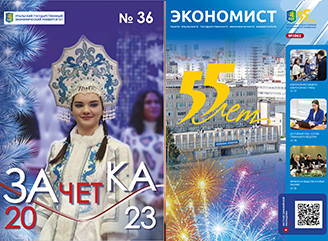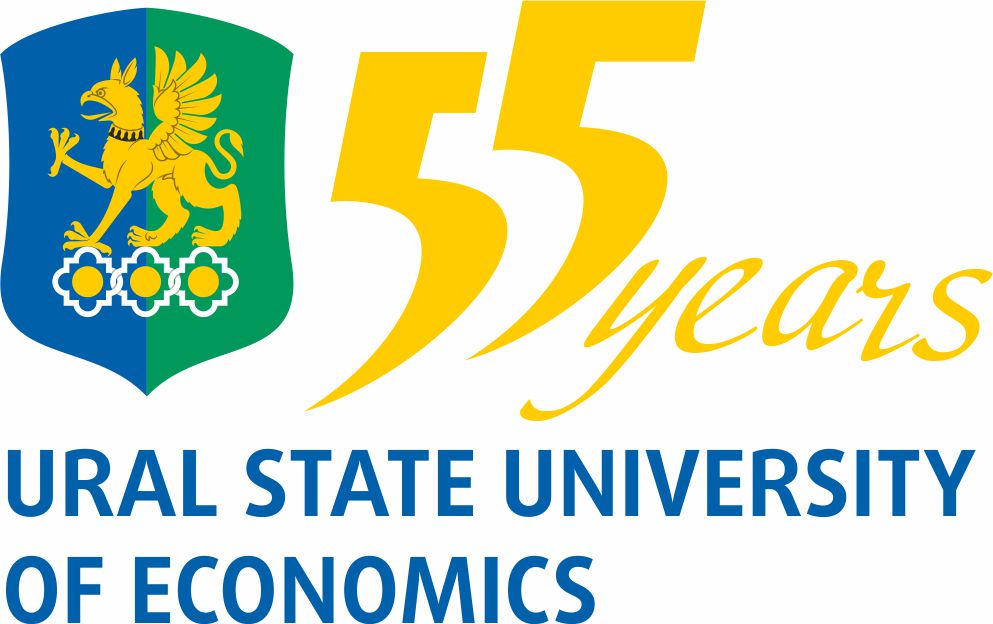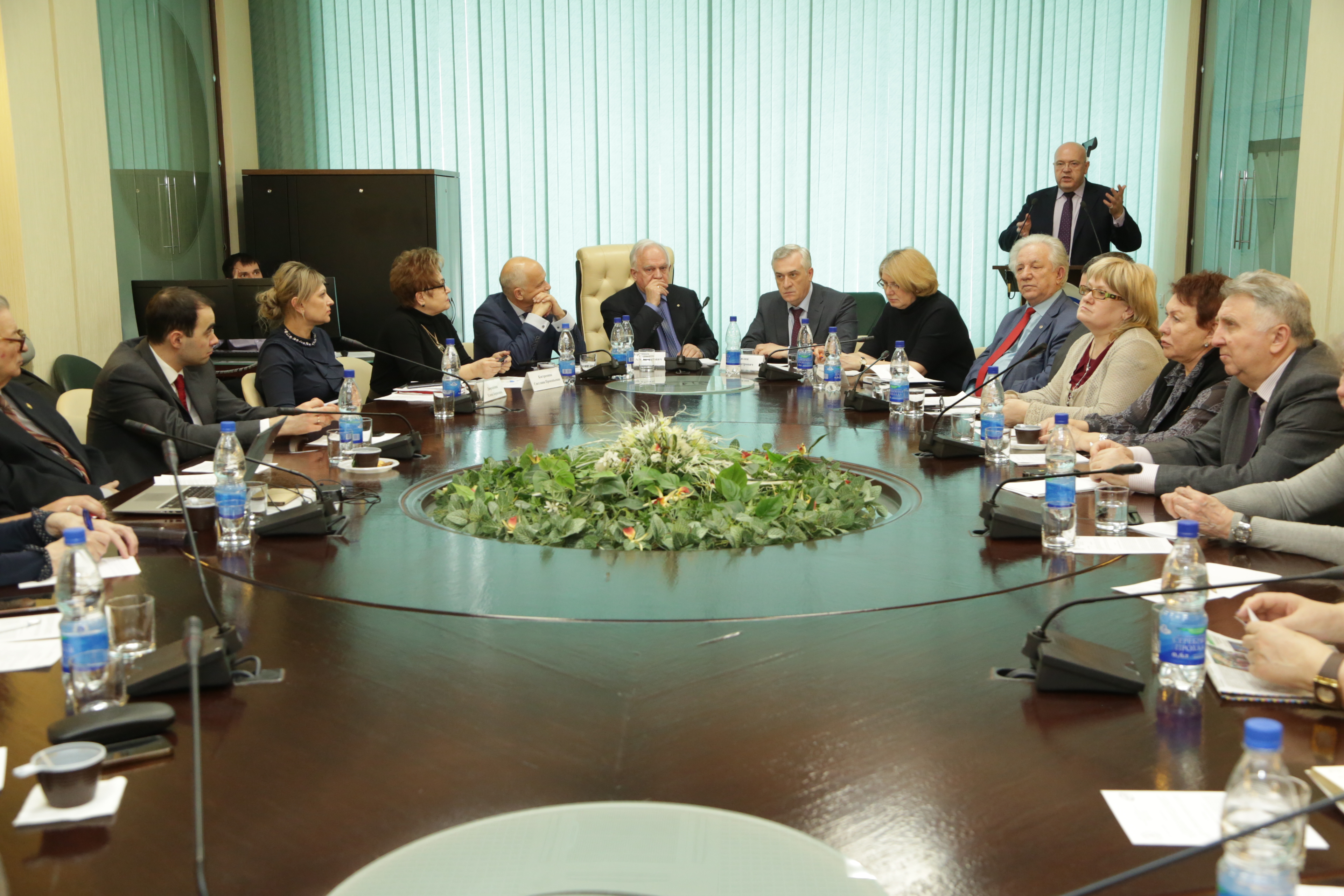 See other releases of corporate mass media
See other releases of corporate mass media
Cryptocurrency technologies inevitably enter our life
The meeting was conducted by Academician of the Russian Academy of Sciences, President of the Eurasian Scientific Research Institute of Man, member of the Presidium of the Ural Branch of the Russian Academy of Sciences Valery Chereshnev. Valery Alexandrovich made a brief overview of Internet information on the topic and a retrospective journey into the history of the international currency, which was born, according to official data, in Japan.
"If 15 years ago a bitcoin cost less than a cent, today, its cost is 1-3-5 thousand dollars against settlements and the amount, sometimes, reach 10-20-30 thousand dollars per bitcoin. These are the same Mavrodi’s pyramids but the currency is connected neither to ruble, nor to dollar, nor to euro, and people gain millions and billions of dollars out of them," he said referring to the scale of the phenomenon. “The cryptocurrencies are discussed at various forums and symposiums of world level. Countries in different ways refer to virtual currency: somewhere it is legalized, and somewhere they impose imprisonment for financial transactions with the ‘shadow’ currency."
Then five interesting reports on the topic of cryptocurrency were delivered, and three of them were made by USUE teachers and scientists.
Maxim Maramygin, director of the USUE Institute of Finance and Law, made a presentation "Cryptocurrency as an Element of Crowd Economy." The speaker called cryptocurrencies the most vivid reflection of the phenomena taking place in the modern public life as a result of the IT revolution of the late twentieth and early twenty-first centuries, which led to the appearance of crowd technologies that later penetrated into social processes. According to the speaker, it was these ways of communication that played a key role in the presidential campaign of US President Trump and in covering the conflict in Ukraine. Crowd programs, bypassing traditional financial instruments, allowed accumulating quite big sums of money for the implementation of specific investment projects.
In a simple language, Maxim Maramygin explained to the audience what a cryptocurrency was, "A program created by programmers on the instructions of mathematicians, which an Internet user was offered to solve. Cryptocoin is a solution to this problem, and to mine means to find a solution to this mathematical problem using a computer."
Despite the fact that some countries still do not accept cryptocurrency, including Russia and China, Maxim Maramygin believes that tomorrow is with digital money. "As civilization goes forward, it is simply impossible to resist this process. We need only a legal framework," he said.
The chair of the USUE Department of Business Informatics Dmitry Nazarov in his report "Cryptocurrency is a Phenomenon of Digital Economy" dwelled separately on the draft law of January 25, 2018 "On Digital Financial Assets", which is under consideration in the State Duma and which is designed to settle a virtual financial process in Russia. In particular, the law says about the prohibition of the anonymity of crypto-wallet owners. However, the adoption of the law is not supported by the Central Bank and is postponed for an indefinite period.
The director and founder of the "Paymon” platform for the rapid cryptocurrency transfer Semyon Gleim has been working in the field of blockchain and cryptocurrency for about three years. Semyon is proud that the development team and he are all USUE graduates. However, despite the successful practice in this field and high popularity of the cryptocurrency in the market of Russia and Yekaterinburg Semyon Gleim called his report "Why Most of the Cryptocurrencies Are Utopia?"
"When a bitcoin was created, its main goal was to save and manage one’s money. Today, the share of the crypto market is so small that it is in an "embryonic" state. If now the states begin to regulate it, then it will not be able to develop and will perish,” he explained his point of view. “All the participants of the crypto market are fighting for two important things: the speed of transactions and the amount of commission for them. An electronic currency will never compete with electronic money on traditional Visa cards, since the speed of transactions with bitcoin is 6, and with Visa cards - 50 thousand per second.
The same is with commissions. Having collected less than a million dollars, we paid $ 15,000 commission. For the development of the market, complete decentralization and free commissions are needed. The market of cryptocurrencies is maintained by large miners. Currently, 50-60% of miners’ equipment is in China. And if something happens to their equipment, the whole system will collapse. As of today, the market is not ready to offer high speed of transactions and the minimum commission cost. A bitcoin is nothing but a window-dressing, a technology that begins to curtail."
The chair of the USUE Department of Labor Economics and HR Management, Ruslan Dolzhenko, on the contrary, suggested thinking over the prospect of developing blockchain technologies and cryptocurrencies. In his opinion, new technologies can significantly transform both financial and labor relations. Blockchain novation is a universal technology. A set of blockchain rules can be built into any system of relations through an information technology, for example, in the relationship between an employee and an employer, simplifying them and eliminating intermediary institutions. As a result, the need for office and bank employees (for example, dealing with p ersonnel or accounting) is minimized, thus reducing financial costs.
The roundtable allowed its participants to look from different points at the issue of new financial technologies and cryptocurrency entering into the life of modern man. The deeper and more detailed the conversation on the topic of virtual currencies is, the less "blind spots" in this matter are and the less are fears of innovation which exists and develops, regardless of whether we want it or not.













